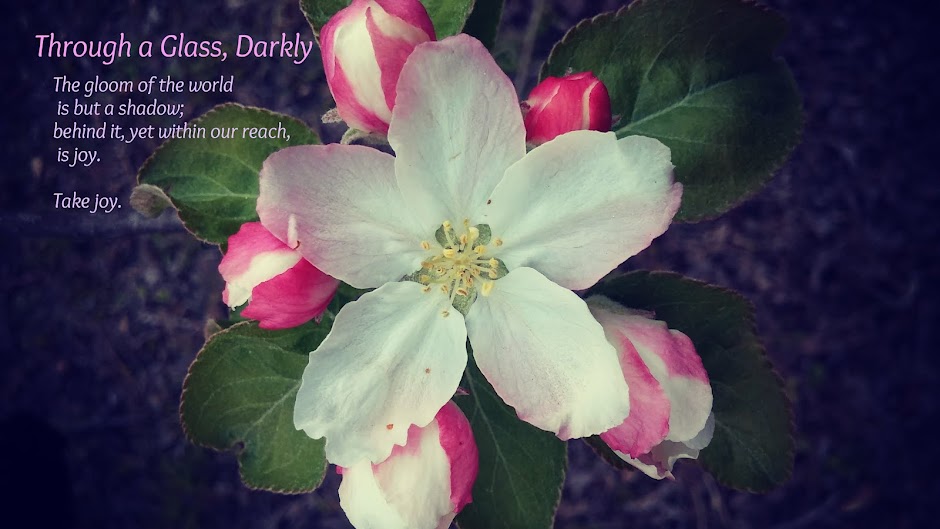Friday, September 26, 2014
Gift-Giving
Gift-giving has been an essential part of human culture for many centuries. I'm reminded of this as Julia and I study Beowulf. In the Anglo-Saxon world, a good king was a generous king; he gave rich gifts to his warriors -- land, gold, halls, gems, weapons and armor. A king's goodness was measured by the extent of his generosity. In response to this, his warriors promised and gave their lives in battle, committed to his defense and honor, and their own. I was tempted to give a long description of this in Beowulf for your reading pleasure, but I'll spare you that.
Much of human history tells of gift-giving cultures. In Asia, this gift-giving/gift-receiving tradition is alive and well. We found this true when we worked at a Christian boarding school years ago; the Korean and Japanese students regularly gave us beautiful gifts from their parents back home. No junky candles or ceramic mugs for their teachers! I received elegant platters, silk scarves, little spoon sets. Each gift was exquisite.
Gift-giving has fallen on hard times. How many blog posts have you read lately, in our affluent Western culture, admonishing us all to stop giving gifts at Christmas? That gift-giving is ruining our children? That gift-giving promotes greediness and selfishness? That is brings debt, showing-off, competition? That it encourages an attitude of entitlement? What happened to the joy, the celebration, the community that should result from the exchange of gifts?
As I think of our gift-giving heritage, I'm reminded that gift exchanges are designed to bond people together. Again, I believe the Asians have retained this important aspect of the custom, while we've lost it. While in China, Anna was instructed to tell her students to give her small gifts; that if she received large, significant gifts from them, she would convey to them a deepened relationship that might involve a commitment on her part that she could not fulfill -- a commitment to house them and host them when the visit the U.S., for instance. At her stage of life, she's not equipped to do that. I think the only situation in our lives that retains a serious commitment tied to a precious gift, is a wedding ring. Otherwise, gift-giving in the U.S. seems to be a throw-away activity, a tiresome obligation.
When Adam and I were dating in 1988, and Christmas was approaching, he decided to give me a thing very precious to him, a set of antique books. They're deep green, marbleized, gold-trimmed. I was bemused at first by the gift. I mean, really ... used books, to your girlfriend? But he had a more romantic view of gift-giving than I. He was giving of himself, a precious possession. The implication was that he was giving them to me because he hoped I would soon belong to him -- that the books would draw us together, we would own them together. But if his gift-giving was wrong-headed, it would result in his loss, both of books and of me.
Anglo-Saxon kings didn't buy the gifts they gave their thanes. They owned the gifts, and gave from their private hoards. They diminished their own wealth to attach someone to them more strongly. I do wonder if such a serious attitude toward gifts might scare us. We're more comfortable now with giving something meaningless (even junky), and receiving something meaningless (even junky). It's safer. What if a friend gave you something you know was very precious to her -- an heirloom? Would you be awed, even uncomfortable, at her love? What if your mother-in-law gave you a beloved family treasure? Wouldn't it make you feel more bound to your new family?
Before we jettison centuries of human tradition this Christmas, let's consider what we're losing. Gifts are designed for expressing value, honor, to bind us together, a commitment of self. Gift-giving is historically part of a larger celebration -- music, tale-telling, food, wine, joy. To receive a gift is to be welcomed into a group. To give a gift is to extend your love and loyalty to include another. The entire system demonstrated stability, love, community, contentment, thankfulness.
What's not to love about that?
I, for one, will keep the age-old tradition of gift-giving alive this year. Perhaps we should simply change how we talk about gift-giving with our children, with each other. Perhaps we should give fewer gifts, but more meaningful ones. Perhaps instead of rejecting gift-giving, we should integrate it more fully into our relationships. We've lost the ability to humbly receive a gift. We view the experience as a cold monetary swap. Instead, gifts should have stories. Gifts should be remembered. Gifts should be beautiful. I want to bear this in mind as I look for gifts this year.
Labels:
Literature,
opinions
Subscribe to:
Post Comments (Atom)



2 comments:
I think you hit it on the head with the idea of meaningful gifts. And to consider time, presence, and effort in addition to material things.
I agree with the notion of fewer gifts with more meaning. Finding something meaningful brings joy to the giver and receiver. Good thoughts, MK.
Post a Comment